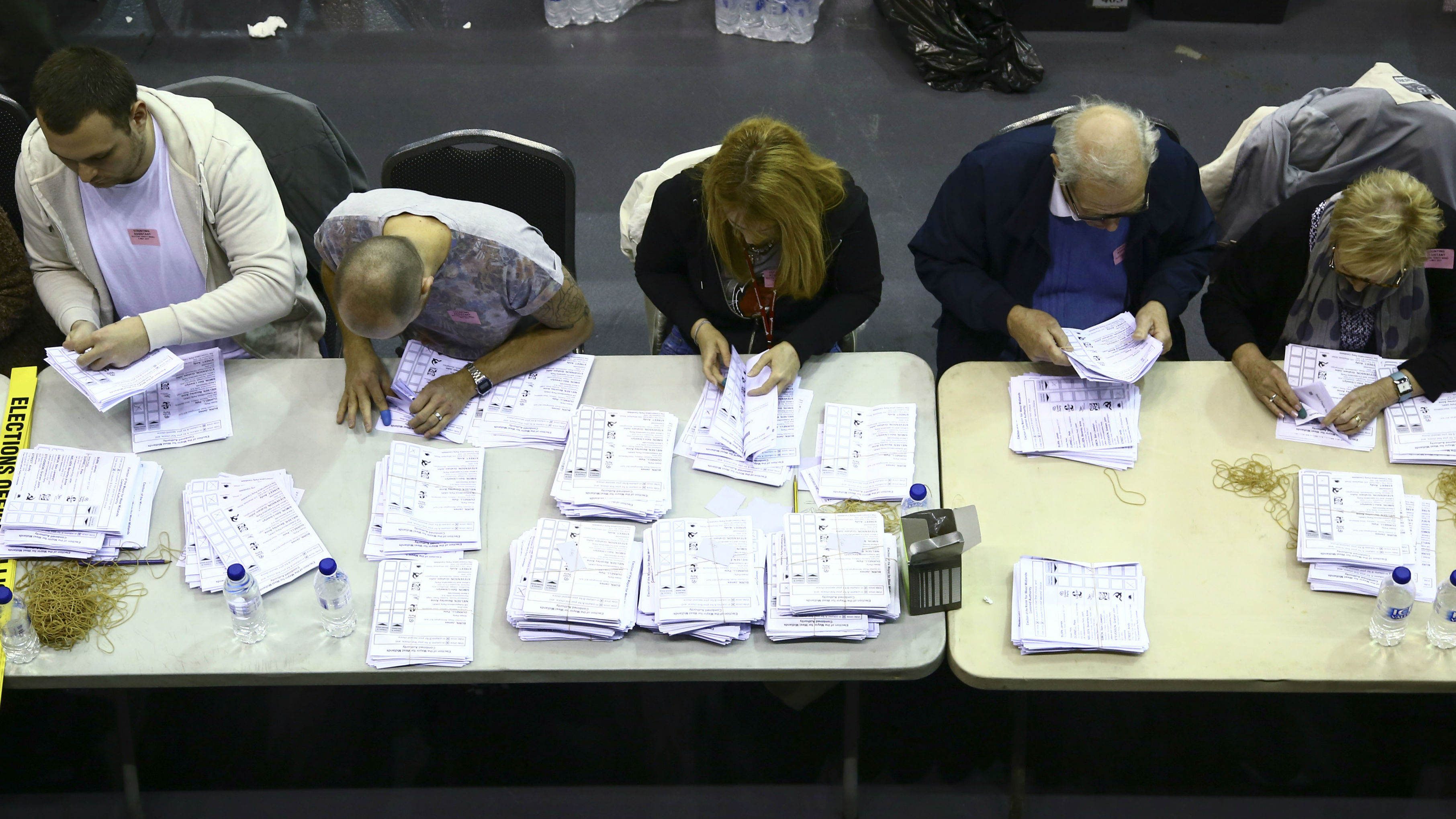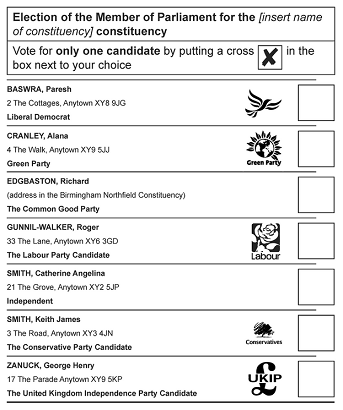How does a UK general election work?
What voters need to know before heading to the polls on 12 December

A free daily email with the biggest news stories of the day – and the best features from TheWeek.com
You are now subscribed
Your newsletter sign-up was successful
The UK’s main political parties are setting out their wares ahead of the launch of the official general election campaign period following the dissolution of Parliament on Wednesday.
Jo Swinson is expected to deliver a speech in London later today in which the Liberal Democrats leader will claim that cancelling Brexit would give a £50bn “Remain bonus” for public services over the next five years.
Meanwhile, Labour’s Jeremy Corbyn will tell an audience in the Leave-supporting Tory-held seat of Harlow, in Essex, that he would “get Brexit sorted” within six months if elected prime minister.
The Week
Escape your echo chamber. Get the facts behind the news, plus analysis from multiple perspectives.

Sign up for The Week's Free Newsletters
From our morning news briefing to a weekly Good News Newsletter, get the best of The Week delivered directly to your inbox.
From our morning news briefing to a weekly Good News Newsletter, get the best of The Week delivered directly to your inbox.
Prime Minister Boris Johnson last night published a letter to Corbyn calling on the Labour leader to “come clean” about his Brexit strategy and admit he wants “to go back to square one”.
As UK voters gear up to head to the polls on 12 December - the first December election since 1923 - here is what you need to know about the process.
Who can vote?
To vote in a general election, you must:
A free daily email with the biggest news stories of the day – and the best features from TheWeek.com
- be 18 or over on polling day
- be a British, Irish or qualifying Commonwealth citizen (i.e. a Commonwealth citizen who has leave to enter or remain in the UK, or who doesn’t require that leave)
- be resident at an address in the UK, or a British citizen living abroad who has been registered to vote in the UK in the last 15 years
- not be legally excluded from voting.
You must also be registered to vote.
What will voters see on their ballot paper?
Voters attending a polling station will be given a ballot paper before going into a voting booth to make their choice.
The ballot paper will have the name of each candidate standing in the constituency, along with the candidate’s party logo (if they have one) and a box where the voter can put a cross to indicate who they are voting for. For example:

The top of the ballot paper will provide a reminder of which election is being contested and give instructions to the voter on the maximum number of candidates for whom they may vote. In a general election, it’s one.
How does first-past-the-post work?
General elections in the UK run on a “first-past-the-post” system, which simply means that whoever gets the most votes in each constituency is elected to the House of Commons.
The winning candidate could get fewer than half the votes in their constituency, so long as they have more than the person in second place.
–––––––––––––––––––––––––––––––For more political analysis - and a concise, refreshing and balanced take on the week’s news agenda - try The Week magazine. Get your first six issues free–––––––––––––––––––––––––––––––
First-past-the-post has come in for criticism from those who say the system is unfairly stacked against smaller parties.
Even if millions of people vote for a party, if those votes are spread out across the UK rather than concentrated in particular constituencies, that party could end up with few or no seats, as the Electoral Reform Society points out.
When are the results announced?
The polls are open from 7am until 10pm on 12 December.
If a voter is in a queue at the polling station at 10pm, they should still be able to vote, even if they are still queuing when that deadline is reached.
Results typically roll in overnight, with the first result usually coming in between midnight at 2am.
The outcome of the election should be clear by around 5am, although if there is a hung Parliament then prepare for days of inter-party bartering.
-
 The Week Unwrapped: Have televised confessions quelled protests in Iran?
The Week Unwrapped: Have televised confessions quelled protests in Iran?Podcast Plus, why has Elon Musk turned from Mars to the Moon? And will the BBC prove to be a puzzles champ?
-
 The week’s best photos
The week’s best photosIn Pictures An Andean god, a rogue squirrel, and more
-
 9 products to jazz up your letters and cards
9 products to jazz up your letters and cardsThe Week Recommends Get the write stuff
-
 How corrupt is the UK?
How corrupt is the UK?The Explainer Decline in standards ‘risks becoming a defining feature of our political culture’ as Britain falls to lowest ever score on global index
-
 The Mandelson files: Labour Svengali’s parting gift to Starmer
The Mandelson files: Labour Svengali’s parting gift to StarmerThe Explainer Texts and emails about Mandelson’s appointment as US ambassador could fuel biggest political scandal ‘for a generation’
-
 Reforming the House of Lords
Reforming the House of LordsThe Explainer Keir Starmer’s government regards reform of the House of Lords as ‘long overdue and essential’
-
 How long can Keir Starmer last as Labour leader?
How long can Keir Starmer last as Labour leader?Today's Big Question Pathway to a coup ‘still unclear’ even as potential challengers begin manoeuvring into position
-
 Three consequences from the Jenrick defection
Three consequences from the Jenrick defectionThe Explainer Both Kemi Badenoch and Nigel Farage may claim victory, but Jenrick’s move has ‘all-but ended the chances of any deal to unite the British right’
-
 The high street: Britain’s next political battleground?
The high street: Britain’s next political battleground?In the Spotlight Mass closure of shops and influx of organised crime are fuelling voter anger, and offer an opening for Reform UK
-
 The MAGA civil war takes center stage at the Turning Point USA conference
The MAGA civil war takes center stage at the Turning Point USA conferenceIN THE SPOTLIGHT ‘Americafest 2025’ was a who’s who of right-wing heavyweights eager to settle scores and lay claim to the future of MAGA
-
 Is a Reform-Tory pact becoming more likely?
Is a Reform-Tory pact becoming more likely?Today’s Big Question Nigel Farage’s party is ahead in the polls but still falls well short of a Commons majority, while Conservatives are still losing MPs to Reform